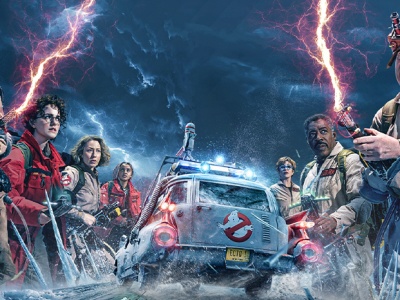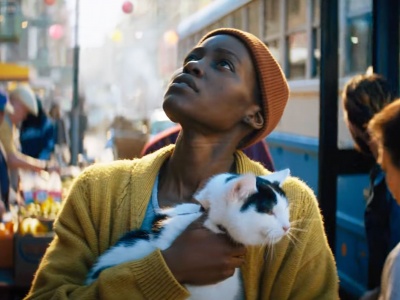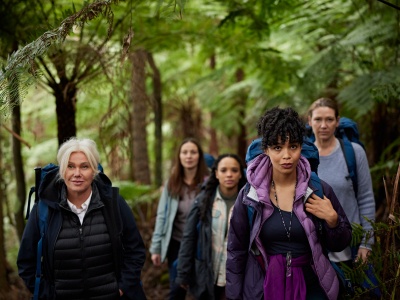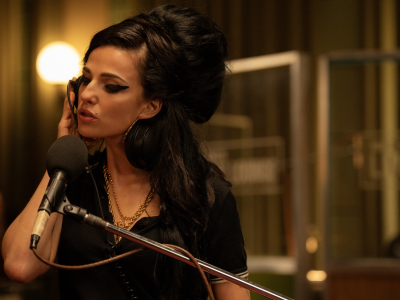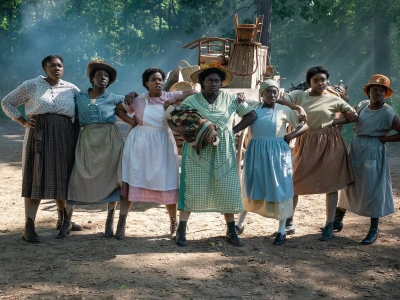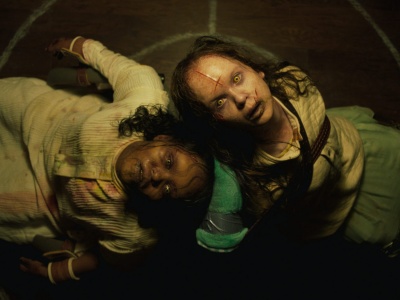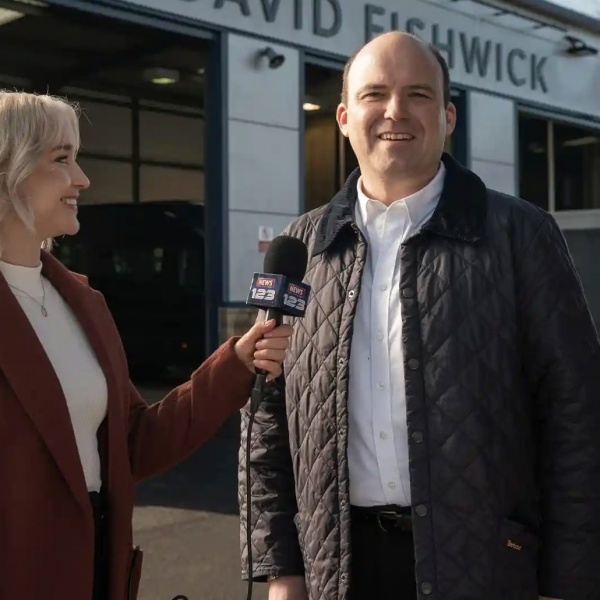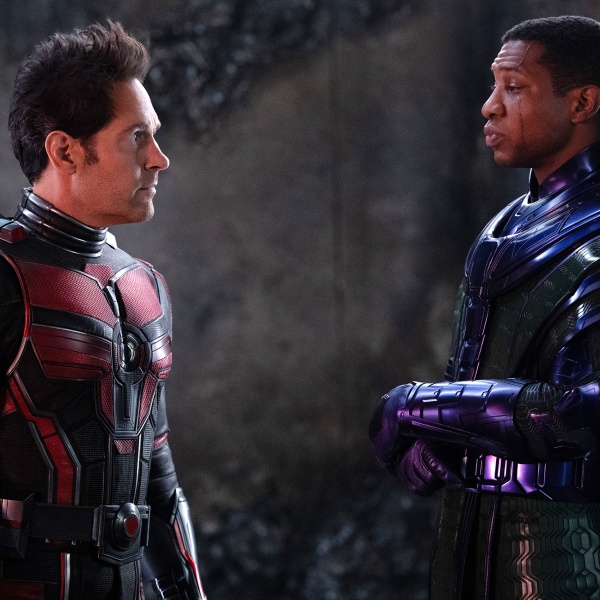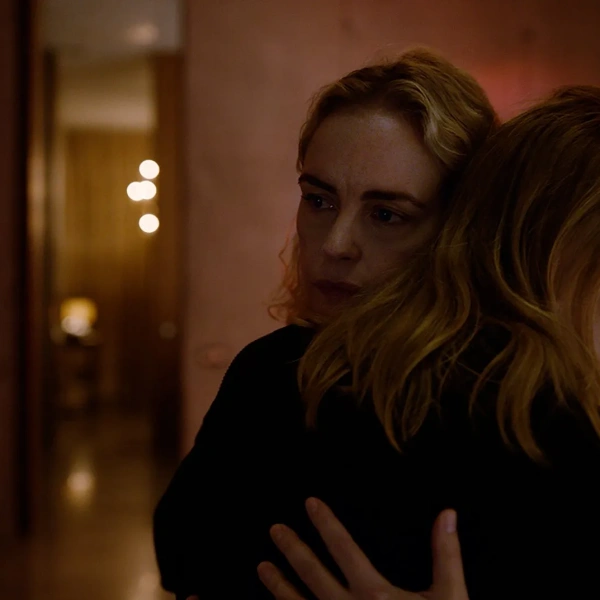With so much to digest within the film Moonlight itself, it’s even harder to digest all the hype, media and views surrounding the film. On the outside you have a wonderful film about a young African American man growing up in the suburbs of Miami. It’s a coming of age story where he struggles to find his path in a world filled with drugs and having to constantly look over his shoulder. And while he manages to escape a life that was almost mapped out for him, he finds himself stuck between a better life and a life he can’t escape. On the other side of this film you have a story about the struggles of being gay, a broken family and finding beauty in an otherwise bleak world.
This isn’t a film about the struggles of being an African American, when you watch the film you see past that. These characters interact with each other just like everyone else does in this world. This film isn’t about being gay as it’s not about sex or sexuality; it’s about love and finding someone that completes you. While Moonlight touches on so many other aspects of growing up an African American and gay in the suburbs of Miami, it’s these themes that stops you in your tracks and leave you thinking about this story for weeks after.
Moonlight is broken into three stories, each sharing the life of Chiron as a child, a teenager and a man. It shows him being bullied by the other kids in the school and his battle living with his mother who is addicted to drugs. He struggles to make friends and keeps to himself out of fear. As a child nicknamed Little for obvious reasons, he meets Juan a local crack dealer who ends up taking him in to feed him up and keep him out of trouble. And in one of the most beautiful scenes in cinema, Juan teaches Little to swim in the ocean. The second act named Chiron, finds the teenager struggle with his mother as their relationship becomes more complicated. She starts to sell their homely possessions and even go as far as to take money from Chiron to buy drugs from Juan. Chiron has one close friend since childhood Kevin who he meets one night at the beach and they open up about their thoughts and feelings to each other, which ends in a passionate embrace. Unrelated, Chiron is assaulted for being gay made worse by the fact that Kevin was the one to give him the bloody face. Out of revenge Chiron finds the ringleader who forced Kevin and knocks him unconscious resulting in being taken into a detention facility. Which leads us to the final act called Black where Chiron has managed to transform his body into muscle littered with tattoos. Dealing drugs to get by he seems to live a comfortable life despite the circumstances. Wearing a grill he goes to visit Kevin after some years and the movie closes with Black’s head on Kevin’s shoulder.
Moonlight is based on the play “In the Moonlight Black Boys Look Blue” written by Tarell McCraney, who also happens to be the writer of the screenplay along with Director Barry Jenkins. You can be excused if you didn’t know about the play, as it was never published. This adds to the splendour of the films success as small film with little or no background to it. The film industry is filled with sequels and prequels, remakes and reboots. Films telling the stories of real life people, so fare and between does the silver screen have the chance to showcase an original idea. McCraney and Jenkins grew up in the suburbs of Miami and returned to film Moonlight, adding authenticity to the film and the story. It’s a good moment to point out that Jenkins himself isn’t gay. Another interesting angle to give this film substance in what might be perceived as being a story about a gay man.
Barry Jenkins doesn’t have a long list of films he has directed, however he is well acclaimed in the industry already. Jenkins wrote and directed his debut film Medicine for Melancholy back in 2008 which received a number of awards. Since Jenkins debut he has written a number of other screenplays which never made it into production. It is perhaps this reason of not having had a great deal of successes or experience that gave Moonlight its real and gritty nature. As Jenkins himself grew up in the suburbs the film is based in, it gives authenticity but also a feeling that Moonlight was made to tell the story not to win an award.
The performances of each of the actors playing Chiron is breathtaking in their approach. First there is Alex Hibbert who aside from doing theatre at school had never graced the screen. Hibbert portrays a lost, quiet little boy who appears alone in the big wide world with no one to direct him. There is this brutally honest and powerful moment when he is sitting at a table with Juan played by Ali Mahershala and asks what a “faggot” is and if he is one. The look in his eyes and his awkward head tilt as he navigates an adult world with no one to turn to is heartbreakingly beautiful to watch. To be able to portray most of a character through body language for the audience to understand their emotion is not an easy feat. It’s Hibbert’s interaction with Mahershala as he is taught to swim in the ocean that explodes with chemistry and pinpoints exactly what it is they are feeling all the while figuring out how to float in the ocean.
Secondly there is Chiron as a teenager played by Ashton Sanders (Straight outta Compton, The Retrieval). Sanders still maintains the lost and confused boy but with a whole lot more on his shoulders. You can see his thoughts as he struggles to convey his feelings. And finally there is Black played by Trevante Rhodes (If Loving You Is Wrong, Westworld, The Night is Young), which is the standout performance of Moonlight. Rhodes still maintains the lost and confused by the world persona, but adds anger and resentment to the mix. He manages to capture this aggressive dominant side as he deals drugs, but as soon as he steps in the diner to meet Kevin all the years later he slips right back to when he was a teenager vulnerable, lost and innocent. The power he gives this character is strong and you can feel and see the change as he navigates his emotions and feelings.
Finally the only other mention from the performances is that of Ali Mahershala (Hunger Games, House of Cards, Hidden Figures). Mahershala has managed to gain a lot of recognition from his performance as the friendly and kind drug dealer Juan. He is the only actor in Moonlight you might actually recognise from his previous work. Sadly it’s this which takes away from the authentic feel of Moonlight as for the most part everyone else has had a small career, if at all. Mahershal is only in the film for such a small part compared to the three Chiron actors but while it was a great performance it was not necessarily an award winning one, not when Trevante Rhodes was outstanding. However with that aside, the scene where he is teaching young Chiron to swim in the ocean is a scene that will be remembered for time to come, as it was powerful, beautiful and innocent all at the same time.
As Juan or Chiron deal their drugs the scenes are met, as you would expect with an R&B sound. However another clever aspect of Moonlight to separate what is much deeper than the stereotyped R&B music as the score flips what it is you are seeing into a beautiful story hidden amongst a maze of confusion and a constant battle to live. The score comes from Composer Nicholas Britell who has also worked on The Big Short, 12 Years a Slave, Whiplash and soon to compose Ocean’s Eight. Britell is no stranger to telling a story through music and adds his talents to glue the visual masterpiece together.
Even before the release the audience was captured with the trailer and promotional material and it’s visual appeal. James Laxton is Director of Photography and manages to capture what feels like the essence of the original play “In the Moonlight Black Boys Look Blue”. The contrast of colours between Chiron’s life and capturing Miami and the suburbs is gritty and real and full of emotion. The innocence and vulnerability of the intimacy between Chiron and Kevin at the beach is tasteful as well as frightening in that this was a new feeling for the characters. It is as if while the characters were hiding their secrets the camera was hiding it with them. And that’s what the entire film felt like; the camera was sharing their emotions with them and only showing what the characters felt, an extension of themselves.
This is a unique film, not only in the subject of the movie but because it has won so many awards and is acclaimed by so many. But Moonlight opened to a very small screening making it possibly the most acclaimed picture to be seen by so few. To give you an idea, at the time of the 2017 Oscars Moonlight has only made about $30 million. But the movie, which it fought for that top spot at the Oscars for, La La Land, pulled in around $150 million. But with the title of Best Picture for 2017, Moonlight will easily surpass La La Land and win a great deal more viewers as it opens up to even more cinemas.
Overall this film which doesn’t star a white person, tackles a life only few can relate to for not only being gay but also growing up in the suburbs of Miami. It’s a heart-warming coming of age story and captures this with brilliant performances tied together with stunning visuals and a superb score. There are times throughout the film where you think it’s trailing off, but what you end up with is a wonderful backstory as to why Chiron is the way he is and why he struggles the way he does. There are a number of aspects that make Moonlight what it is: the fresh Director, the almost unknown cast, the original idea and a subject almost untouched by the mainstream. But what makes this movie even better, is it’s the underdog. No one knew about it and so few had seen it, yet they came out on top. Take away the awards and all the media surrounding it and you still have a beautiful film that is worthy of being seen by all.
Review by Jay Cook





